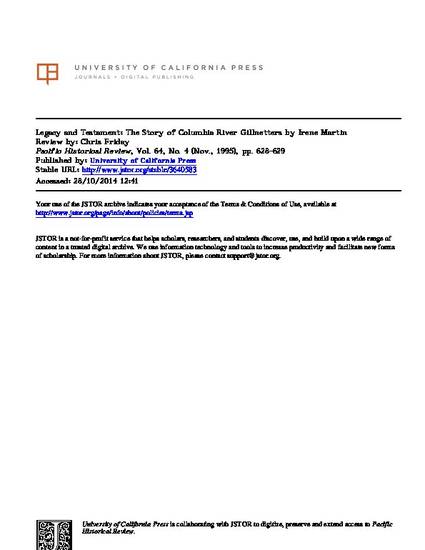
Who controls the commons and with what end in mind? Irene Martin proposes that Columbia River gillnetters have rights to fish for salmon that are "rooted in custom and community" (p. 109). Since the 1920s, canning companies on the Columbia began to buy fish from independent boat owners rather than running fleets of their own. As a result, small groups of those fishermen established "drift rights" by clearing snags and debris from the stretches of the river bottom. Competition among fishermen, complicated by the sale and inheritance of drift rights, led to court battles that confirmed the legality of drift rights as property. Up to 1990, Martin explains, "[d] rift rights were a community's way of organizing access to fishing grounds" (p. 33). In that year, however, the Washington Supreme Court ruled: "Only the Department [of Fisheries] is in a position to establish the orderly promotion of gillnet fishing on the Columbia River" (p. 99). That decree, along with the placement of salmon on the endangered species list and the competition for the resource with Native Americans (who have treaty rights) and with sport fishers, has proven a death knell for the lifeways of Columbia River gillnet fishermen.
Available at: http://works.bepress.com/chris_friday/2/
